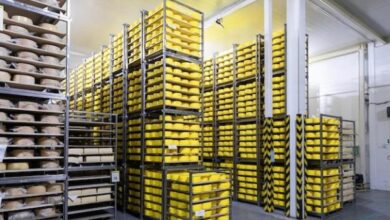
In the rapidly evolving landscape of the construction industry, managing projects efficiently is paramount to success. The integration of technology has become a game-changer, and one of the most impactful advancements in this domain is Enterprise Resource Planning (ERP) software tailored specifically for construction. Construction ERP Software News.ticbus.com serves as a vital resource for professionals seeking to understand the latest trends, features, and benefits of ERP solutions in the construction sector. This article delves deep into the significance of construction ERP software, highlighting its transformative impact on project management, resource allocation, and overall operational efficiency.
Understanding Construction ERP Software
What is Construction ERP Software?
Construction ERP software is a comprehensive tool that enables construction companies to manage their operations efficiently. It integrates various functions such as project management, financial management, human resources, supply chain management, and customer relationship management (CRM) into a single, unified system. This integration helps streamline processes, improve data accuracy, and enhance decision-making capabilities.
The Importance of ERP in the Construction Industry
The construction industry is characterized by its complexity, with numerous moving parts that need to work harmoniously to ensure project success. ERP systems help address the unique challenges faced by construction firms by providing:
- Real-time Data Access: Construction ERP software offers real-time data access, allowing project managers and stakeholders to make informed decisions based on up-to-date information.
- Enhanced Collaboration: With a centralized system, different departments can collaborate more effectively, reducing the likelihood of miscommunication and errors.
- Improved Financial Management: ERP solutions help track costs, budgets, and financial performance, providing insights that drive profitability and financial stability.
- Regulatory Compliance: Construction projects must adhere to various regulations and standards. ERP software aids in maintaining compliance by ensuring that necessary documentation is organized and accessible.
Key Features of Construction ERP Software
Construction ERP Software News.ticbus.com highlights various essential features of construction ERP systems that are critical for enhancing operational efficiency. Some of the key features include:
1. Project Management Tools
Effective project management is at the heart of construction ERP software. It enables users to plan, execute, and monitor projects from start to finish. Features such as Gantt charts, task assignments, and progress tracking help ensure projects stay on schedule and within budget.
2. Financial Management
Robust financial management features are crucial for tracking costs, managing budgets, and ensuring profitability. Construction ERP software includes tools for invoicing, payroll processing, expense tracking, and financial reporting, allowing businesses to maintain a healthy financial status.
3. Resource Management
Efficient resource allocation is vital in construction. ERP software provides visibility into resource availability, including labor, equipment, and materials. This functionality ensures that resources are utilized optimally, reducing waste and delays.
4. Document Management
Construction projects involve a significant amount of documentation, from contracts to blueprints. ERP systems offer document management capabilities that allow users to store, organize, and share documents securely. This feature ensures that critical information is easily accessible to all stakeholders.
5. Customer Relationship Management (CRM)
Maintaining strong relationships with clients is essential for construction companies. ERP software often includes CRM tools that help track client interactions, manage leads, and monitor project performance. This capability enhances customer satisfaction and fosters long-term partnerships.
6. Reporting and Analytics
Data-driven decision-making is facilitated by advanced reporting and analytics features. Construction ERP software allows users to generate customized reports and dashboards that provide insights into key performance indicators (KPIs), helping businesses make informed strategic decisions.
Benefits of Using Construction ERP Software
Implementing Construction ERP Software News.ticbus.com can bring a multitude of benefits to construction firms. Here are some of the most significant advantages:
1. Increased Efficiency
By automating routine tasks and streamlining processes, construction ERP software increases overall operational efficiency. Teams can focus on high-value activities rather than getting bogged down by administrative work.
2. Enhanced Decision-Making
Access to real-time data and analytics empowers decision-makers to make informed choices quickly. This agility is crucial in the construction industry, where conditions can change rapidly.
3. Cost Savings
Effective financial management and resource allocation lead to significant cost savings. By minimizing waste and optimizing operations, construction firms can enhance their bottom line.
4. Scalability
As construction companies grow, their operational needs evolve. ERP systems are designed to scale, allowing businesses to add new functionalities and accommodate increased workloads without significant disruptions.
5. Improved Collaboration
With a centralized system, teams can collaborate more effectively, sharing information and insights in real time. This collaborative environment fosters innovation and enhances project outcomes.
6. Better Risk Management
Construction projects are inherently risky, with various factors that can impact success. ERP software helps identify potential risks early by providing visibility into project performance and resource allocation. This proactive approach enables companies to mitigate risks before they escalate.
The Role of Construction ERP Software News.ticbus.com
Construction ERP Software News.ticbus.com serves as a vital resource for construction professionals looking to stay informed about the latest trends, advancements, and best practices in ERP software. The platform offers:
1. Comprehensive Insights
With in-depth articles and analyses, News.ticbus.com provides valuable insights into the features and benefits of various construction ERP solutions. This information helps businesses make informed decisions when selecting an ERP system.
2. Industry News
Staying updated on industry news is crucial for construction companies. News.ticbus.com delivers timely updates on market trends, regulatory changes, and technological advancements, enabling businesses to adapt to evolving conditions.
3. Expert Opinions
The platform features expert opinions and case studies that illustrate the practical applications of construction ERP software. These real-world examples help businesses understand how ERP systems can address their specific challenges.
4. Product Reviews
With a variety of construction ERP solutions available, choosing the right one can be overwhelming. News.ticbus.com offers product reviews and comparisons, guiding businesses in selecting the best ERP software for their needs.
5. User Testimonials
Hearing from other construction professionals can provide valuable insights into the effectiveness of ERP solutions. News.ticbus.com features user testimonials that highlight real experiences, helping potential users gauge the benefits of specific software.
The Future of Construction ERP Software
As the construction industry continues to evolve, so too will the technologies that support it. The future of Construction ERP Software News.ticbus.com is likely to be shaped by several key trends:
1. Integration with Emerging Technologies
The integration of emerging technologies such as artificial intelligence (AI), machine learning, and the Internet of Things (IoT) will enhance the capabilities of construction ERP software. These technologies will enable more accurate forecasting, improved data analysis, and enhanced automation.
2. Mobile Solutions
As the workforce becomes increasingly mobile, the demand for mobile ERP solutions will rise. Construction ERP software will likely evolve to offer more robust mobile functionality, allowing teams to access critical information and perform tasks on the go.
3. Cloud Adoption
Cloud-based ERP solutions are gaining traction in the construction industry due to their flexibility and scalability. Future developments will focus on enhancing cloud capabilities, ensuring data security, and providing seamless integration with other software solutions.
4. Enhanced User Experience
User experience (UX) will remain a priority in the development of construction ERP software. Companies will invest in intuitive interfaces and user-friendly designs to ensure that team members can leverage the software effectively, regardless of their technical expertise.
5. Data Security
As the reliance on digital solutions increases, so does the need for robust data security measures. Construction ERP providers will focus on enhancing security protocols to protect sensitive information and maintain compliance with industry regulations.
Implementing Construction ERP Software: Best Practices
To maximize the benefits of Construction ERP Software News.ticbus.com, construction firms should follow best practices during implementation:
1. Define Clear Objectives
Before implementing an ERP system, businesses should clearly define their goals and objectives. Understanding what they hope to achieve will guide the selection and implementation process.
2. Involve Key Stakeholders
Involving key stakeholders from various departments ensures that the chosen ERP system meets the diverse needs of the organization. Their input is crucial for a successful implementation.
3. Invest in Training
Providing adequate training for employees is essential for successful ERP adoption. Organizations should invest in training programs to ensure that team members are comfortable using the new system.
4. Monitor and Evaluate Performance
After implementation, it’s important to monitor and evaluate the performance of the ERP system. Regular assessments will help identify areas for improvement and ensure that the software continues to meet organizational needs.

5. Stay Informed
The construction industry is constantly evolving, and so is technology. Staying informed about the latest trends and advancements in ERP software will help businesses leverage their systems effectively and remain competitive.
Conclusion: Embracing the Future with Construction ERP Software News.ticbus.com
In an industry as dynamic and complex as construction, the ability to manage operations efficiently is critical for success. Construction ERP Software News.ticbus.com serves as a vital resource for organizations seeking to harness the power of ERP solutions to drive growth, improve efficiency, and enhance project outcomes. By embracing these technologies, construction firms can navigate the challenges of the modern landscape and position themselves for long-term success.
As businesses continue to evolve, so too will the tools that support them. Staying informed about the latest developments in construction ERP software is essential for making informed decisions that drive operational excellence. With the right ERP solution and the insights provided by News.ticbus.com, construction companies can unlock their full potential and thrive in a competitive market.





